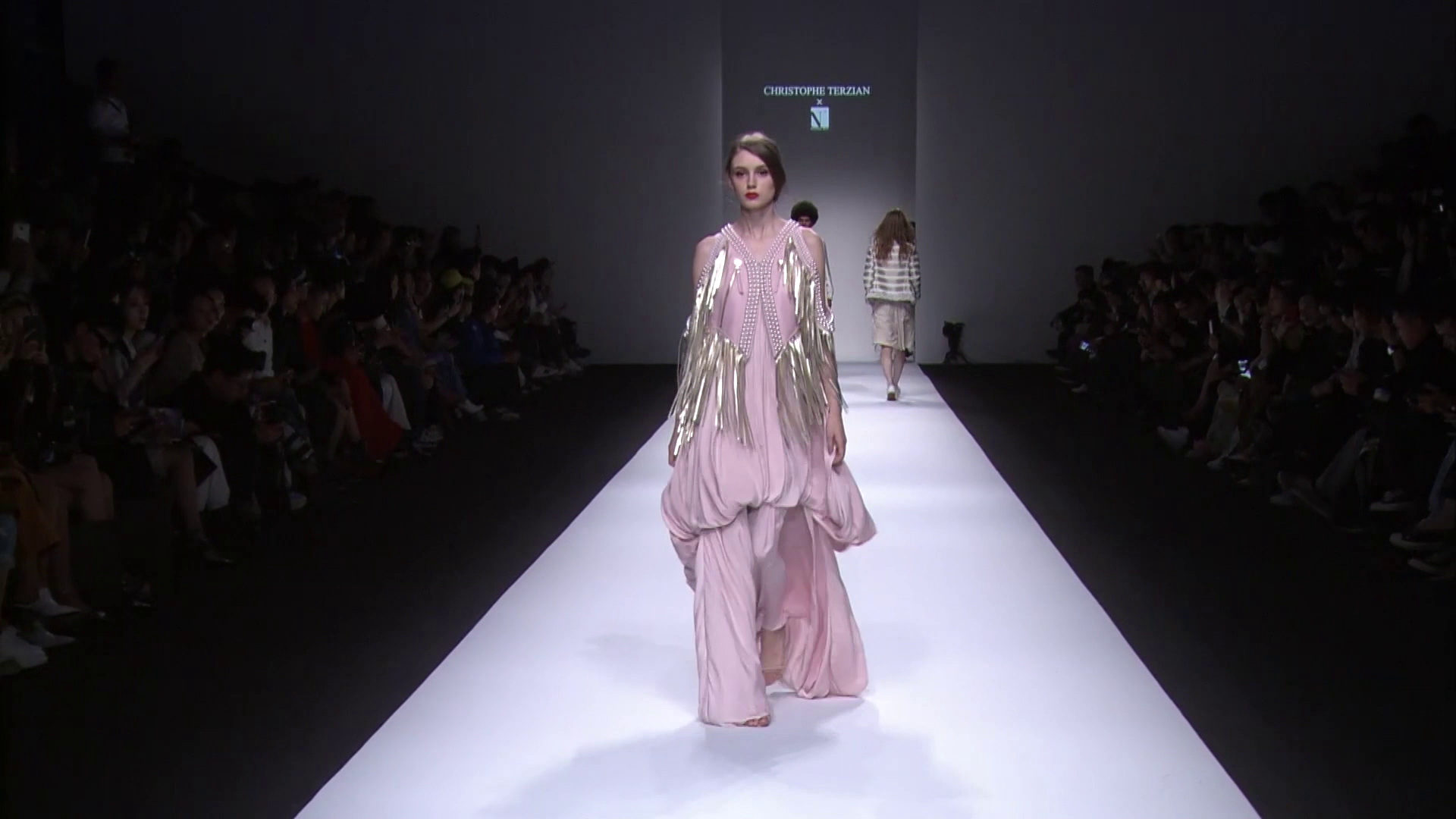
Editor’s note, 3.20.20:This story was updated to correct the designers taking part in the fashion show.
Shanghai Fashion Week on Wednesday unveiled the official schedule and lineup for its autumn-winter 2020 edition, which will likely be the world’s first fashion-week event to livestream its entire roster of runway shows.
All showcases will be broadcast from March 24-30 via Tmall, Alibaba Group’s e-commerce platform. These include fashions from big-name international brands, such as Diane von Furstenberg, along with homegrown indie designers, like Yirantian, Shushu/Tong and Angel Chen.
Online Makeover
Shanghai Fashion Week was initially postponed due to the spread of Covid-19 but organizers decided to partner with Tmall to move the event online. More than 150 designers and brands will use livestreaming to present over 1,000 products from their newest collections and sell garments to more than 800 million monthly active users who visit Alibaba’s e-commerce sites. The event’s “See Now, Buy Now” format will allow viewers to purchase catwalk items – and pre-order new looks from the fall collection – in realtime via their smartphones.
“China’s fashion industry and market have matured through the years and entered into a new age of creative energy and boundless opportunities,” said Vice Secretary-General of Shanghai Fashion Week Xiaolei Lv, also known as Madame Lu. “It would be a great regret if the coronavirus outbreak posed a challenge for these aspiring brands and talents, limiting what they could accomplish. As a platform long dedicated to supporting Chinese creative talents, we must take action.”
With industries around the world coming to a standstill due to the coronavirus, the young but increasingly influentialfashion week looks to turn the crisis into opportunity by offering a digital platform for brands to showcase their work and vocalize their creative visions while also engaging with consumers and generating immediate sales in a first-of-its-kind experience. They can make use of the new Tmall Flagship 2.0 format to personalize their virtual stores. For example, brands can leverage augmented-reality applications or “store lofts,” which are special pages of multimedia content users can access by dragging down the screen on their phones.
WATCH: Shanghai Fashion Week AW2020 Teaser
“For this edition of Shanghai Fashion Week, we have integrated some of Alibaba’s most-advanced technologies to bring a new and elevated experience to consumers,” said Mike Hu, head of Tmall Fashion, Luxury and FMCG.
“This partnership allows us to leverage our experience in digitizing brick-and-mortar retail stores and explore a new format for brand and product launches, which brings together technologies like livestreaming, short-form videos, DingTalk and Tmall Flagship 2.0 in a full-chain solution,” he added.
Hu said this “cloud launch” format shakes up the traditional product-launch event. Instead of a two-hour press conference, brands can interact with consumers across an extended timeline, from warm-up previews to the live broadcast and post-event interviews, in front of an audience of potentially thousands or millions instead of just a few hundred people. It breaks down the physical limitations of time and geography for brands to engage their consumers, he said.
Fashion Forward
Tmall also wants to bring this capability and new digital technologies to future seasons of fashion weeks around the globe. Last year, the platform rolled out a series of activations showcasing Chinese designers at the fashion week events in New York, Paris and Milan through its China Cool initiative. Tmall also partners with such weeks to help international brands, such as Grey Jason Wu and Robert Geller, break into China’s burgeoning fashion market.
Another major focus for Tmall at this year’s fashion weeks will be crossovers, especially those that merge beauty with fashion, said Hu. The platform plans to team up with global brands to launch 360-degree marketing campaigns that cater to Chinese audiences, much like Super Brand Day, which rallies all the resources across the Alibaba ecosystem to create a smaller version of the company’s annual 11.11 mega-sale for a single brand.
Hu, who recently took the helm at Tmall’s fashion and luxury divisions, said he also wants to use more innovations, such as cloud launches or livestreaming, to help brands on the platform supercharge their sales, branding, marketing, consumer insights and membership operations. And as more luxury brands, such as Cartier and Chanel, join Tmall’s Luxury Pavilion channel, the platform is designing new tools to help them better reach luxury consumers in China. In the near future, it will launch a new service offering luxury products at different stages of the product life cycle – for example, full-price products and out-of-season outlet items – targeted at different consumers.
“This would allow brands to bring their full range of products across life cycles onto one platform,” said Hu, adding that the offering would help brands gain a better understanding of different types of consumers. “This year, we expect to see more luxury brands strategize around their Tmall flagships as a hub for brand-building and consumer engagement.”
Sign up for our newsletter to receive the latest Alibaba updates in your inbox every week.




